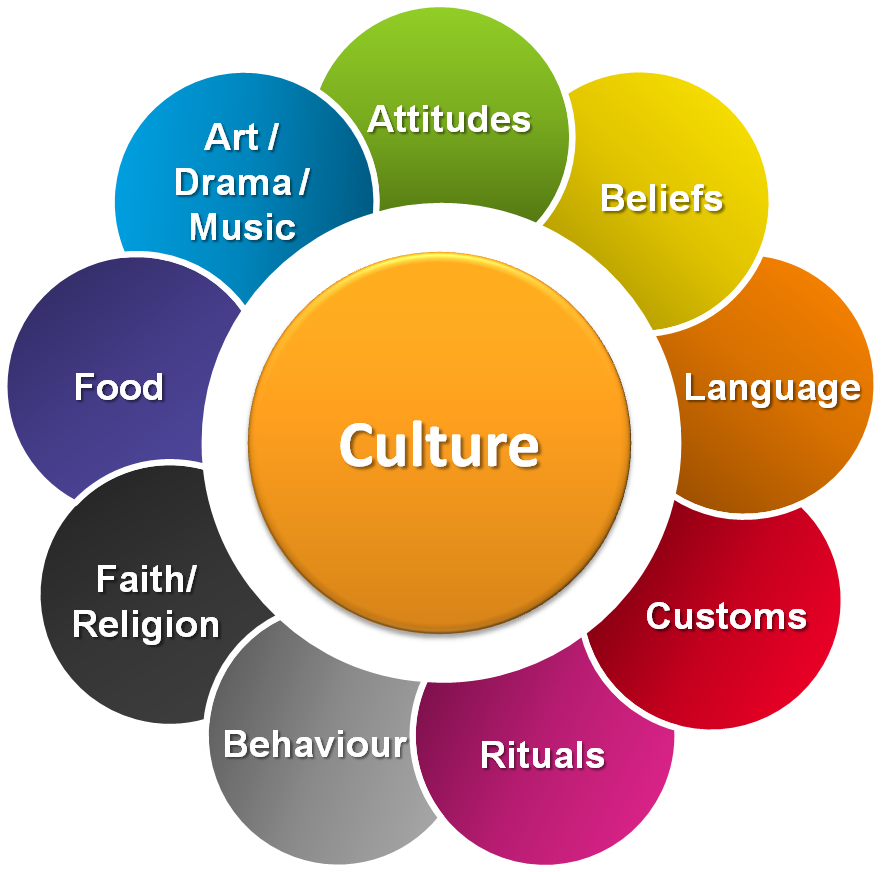Culture is a fundamental aspect of human existence that shapes our identities, beliefs, and values. At its core, basic culture encompasses the shared behaviors, customs, and traditions that unite a community. It serves as a foundation for social interaction and plays a crucial role in maintaining the fabric of society. As we navigate through the complexities of modern life, understanding basic culture becomes increasingly important, as it helps us connect with others and appreciate the diversity that surrounds us.
In a world that is constantly changing, the concept of basic culture remains a constant that binds individuals to their heritage and community. It provides a sense of belonging and identity, allowing people to feel grounded in their social environment. By exploring the nuances of basic culture, we can gain insights into how it influences our daily lives and the relationships we build with others.
Throughout this article, we will delve deeper into the aspects of basic culture, examining its significance in various contexts and how it shapes our perceptions and interactions. By understanding the core elements of basic culture, we can foster greater appreciation for the rich tapestry of human experience and learn to embrace the differences that make our world so unique.
What Are the Key Elements of Basic Culture?
Basic culture encompasses several elements that contribute to the identity of a community. These key elements include:
- Language: The primary means of communication and expression.
- Customs: Traditional practices and rituals that define a group's lifestyle.
- Values: The collective beliefs that guide behavior and decision-making.
- Norms: The unwritten rules that govern social interactions.
- Symbols: Objects or images that carry particular meanings within a culture.
How Does Basic Culture Shape Our Identity?
Basic culture plays an integral role in shaping our individual and collective identities. From a young age, we are immersed in our cultural environment, which influences our thoughts, behaviors, and preferences. This cultural immersion helps us form a sense of self and belonging, ultimately guiding our interactions with others. Understanding how basic culture shapes our identity allows us to appreciate the diverse perspectives that exist within society.
What Role Does Basic Culture Play in Social Cohesion?
Basic culture is essential for fostering social cohesion within communities. By promoting shared values and traditions, it helps create a sense of unity among members. This sense of belonging can lead to stronger relationships and collaboration, ultimately enhancing the overall well-being of a community. In contrast, a lack of understanding or appreciation for basic culture can lead to division and conflict, highlighting the importance of cultural awareness.
How Can We Preserve Basic Culture in a Globalized World?
In an age of globalization, preserving basic culture has become increasingly challenging. As cultures blend and interact, it is essential to find ways to maintain the uniqueness of individual cultures. Strategies for preserving basic culture may include:
- Encouraging cultural education in schools.
- Supporting local artisans and traditional practices.
- Documenting and sharing cultural stories and histories.
- Promoting cultural festivals and events.
What Are the Challenges to Basic Culture Today?
Basic culture faces numerous challenges in today's fast-paced world. Some of the most pressing issues include:
- Globalization leading to cultural homogenization.
- The decline of traditional languages and practices.
- Increased migration resulting in cultural clashes.
- Technological advancements overshadowing cultural experiences.
How Can Individuals Contribute to the Preservation of Basic Culture?
Individuals can play a crucial role in the preservation of basic culture by actively engaging with their cultural heritage. This can be achieved through:
- Participating in cultural events and festivals.
- Learning and practicing traditional customs and rituals.
- Sharing cultural knowledge with younger generations.
- Supporting local businesses that promote cultural heritage.
What Is the Future of Basic Culture?
The future of basic culture will largely depend on our collective efforts to embrace and celebrate diversity while preserving our unique identities. As we confront the challenges posed by globalization and rapid technological advancements, it is imperative to foster an environment that values cultural expression and understanding. By promoting dialogue and collaboration among different cultures, we can ensure that basic culture continues to thrive in an ever-evolving world.
Conclusion: The Importance of Basic Culture
In conclusion, basic culture serves as the backbone of human society, providing a shared framework for understanding and interaction. By recognizing its significance, we can work towards fostering a more inclusive and harmonious world that values diversity and cultural heritage. As we navigate the complexities of the modern era, let us not forget the importance of basic culture in shaping our identities and fostering social cohesion.
You Might Also Like
The Ultimate Guide To Azusa Pacific University Trustees ScholarshipDiscovering The Wonders Of Oasis Medaesthetics
Unraveling The Mysteries Of JJK Chapter 85
Unlocking The Mystique Of Mo Ub: A Deep Dive
Discover The Benefits Of Go Ultra OTC Hearing Aids
Article Recommendations
- John Bennett Perry
- Foot Booties Peel
- Best Indoor Plants For Asthma Uk
- Tattoo Designs Wife Name
- 22 Tcm
- Does Matcha Help Lose Weight
- How Long Does Hepatitis Live Outside The Body
- Mumbai International Airport Transit Hotel
- Delete Hulu Watch History
- Are Egg Cartons Recyclable


